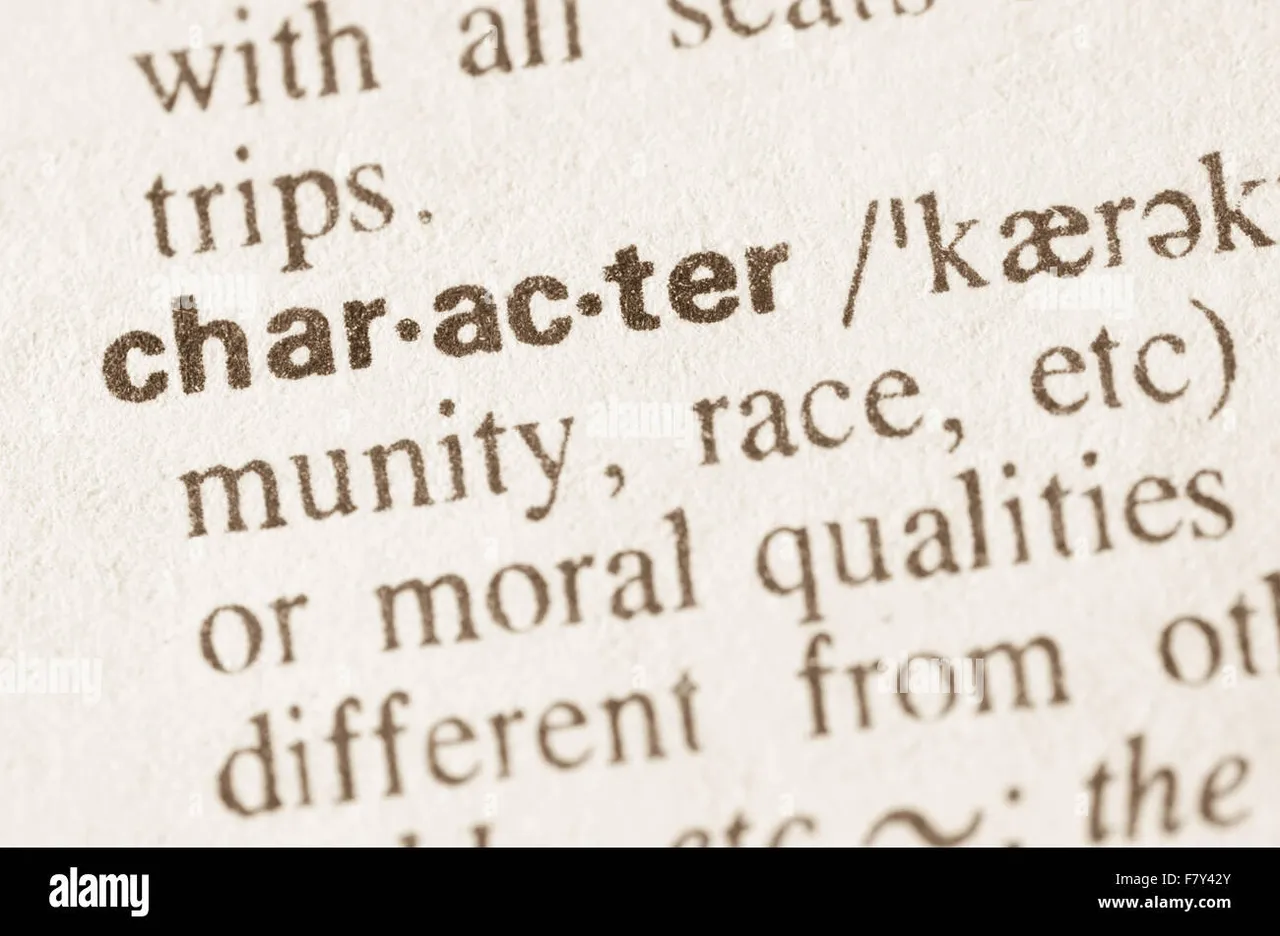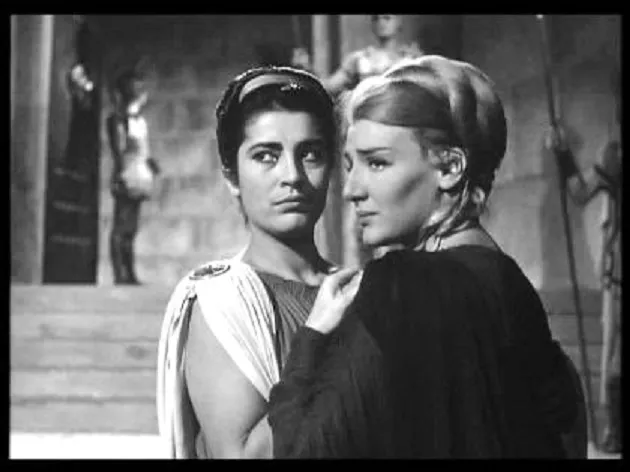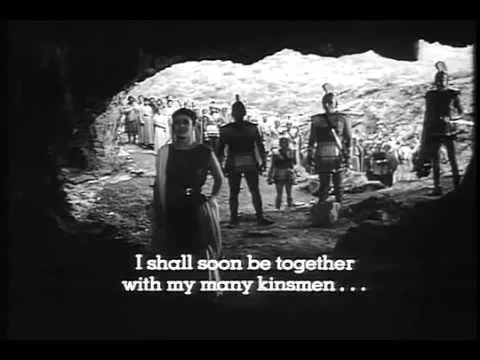Character. Αccording to Merriam - Webster dictionary the specific word (among others meanings) states:
- one of the attributes or features that make up and distinguish an individual or a group of people
- one of the persons of a drama or novel
- moral excellence and firmness
source
So, the question about our favourite fictional character that @cinetv asked (you can see all about it here), brings out more questions on whether we should stand on the special features that one of the protagonist may have or the moral excellence that a real or fictional person might have.
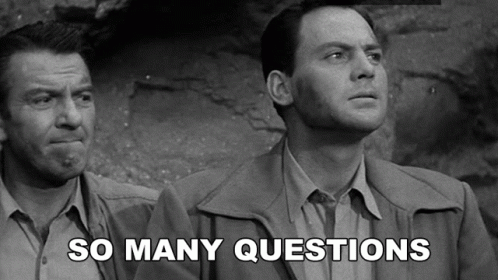
The subject troubled my mind... I had a lot of characters in novels and plays and films that came to thought but really couldn't decide upon one. And, as in all -well directed- relevelations films, the answer came to me through a book.
Literally, a book that fell on my head. (thank God, it is not that big)
Antigone, of Sophocles.
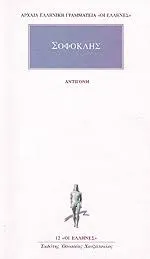
I know you will have a question and an objection. First, are we talking about the famous Antigone? And if so, the contest is about films, not plays. I'll answer both.
For those, however, who are not familiar with Antigone and the plot surrounding her name, I will give a brief synopsis.
We are in Thebes, a powerful city of ancient Greece.
Laius and Jocasta, kings of Thebes, give birth to a son, but according to the oracle of Delphi, he will kill his father (in those days, the ancients believed whatever the oracle told them). So Laius orders a shepherd to abandon the baby in the forest to die, but the shepherd takes pity on him, gives him the name Oedipus, and gives him as a gift to the King of Corinth.

Years later, the prophecy is fulfilled as Oedipus, now a grown man, kills Laius in a quarrel and, after destroying the sphinx that had been plaguing the city of Thebes, becomes king and marries Jocasta.
(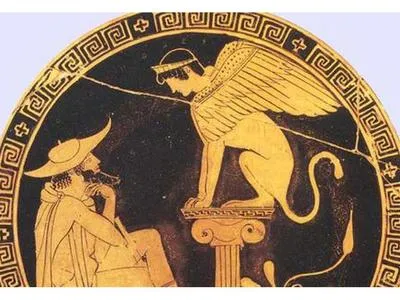
Well, didn't he know she was his mother, you ask. The answer is no: He finds out much later, having had four children with her, Eteocles, Polyneices, Antigone and Ismene. When the truth comes out , Jocasta kills herself and Oedipus blinds himself.
His two boys are left to rule the city of Thebes, but Eteocles' greed prevents Polynices from ascending to the throne as well, so Polynices raises an army to claim his rights. Brother against brother fights for the throne and in the end they are both killed, one by the hand of the other. (But that's another drama, Seven Against Thebes)
And this is where Antigone's presence begins.

Creon, the brother of Jocasta, becomes king of Thebes and issues a cruel order. Eteocles is to be buried with full honors as a hero of Thebes, while Polynices is to be left unburied, at the mercy of jackals and vultures.
Creon, with this order, sets the impetus for the drama, committing hubris, defying the laws of the gods which stipulated that all the dead should be buried with honours.
Antigone, therefore, decides to defy the order and bury her brother Polynices.
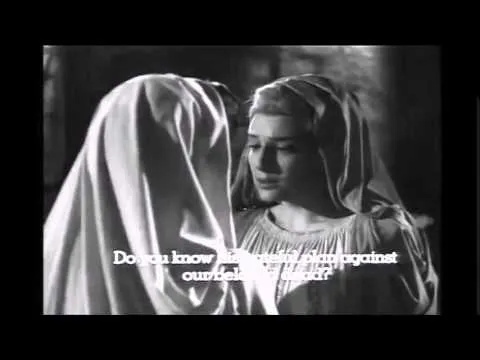
She turns first to her sister, the only family she has left, to help her in the sacred transgression she wants to commit. However, her sister, Ismene, fearfully refuses to help her, stating that she will obey Creon's orders.
Antigone's path is now a lonely one. She declares her immovable decision to bury her brother, even wthout any help.
Antigone is driven by two main axes: her love for her family and her piety towards the gods. Her decision was not made lightly. She is a young woman, scarred by her family's suffering, beyond human measure.
She is a woman who dares to act beyond her place in society. She may be a royalty, but she is still a woman, as Ismene reminds her in her attempt to talk her out of her despicable act. And being a woman in ancient times meant that she had to submit to the decisions of men, however wrong they may have been.
You are always defying the world, but you're only a girl, after all.
Ismene to Antigone
She is a woman who dares to oppose authority. Creon, though her uncle and future father in law, is still the ruler of the city and his decisions are law. It is no coincidence that Creon has decreed the death penalty for anyone who violates his orders.
And when Antigone is caught red-handed for her brother's grave, she does not flinch. Throughout her interrogation by Creon, she declares her intention to follow the law of the gods and love. She points out to Creon the arrogance he commits by putting himself above the gods. She is not afraid at any moment, not even when the sentence of death (confinement in a cave without water or food) is announced to her.
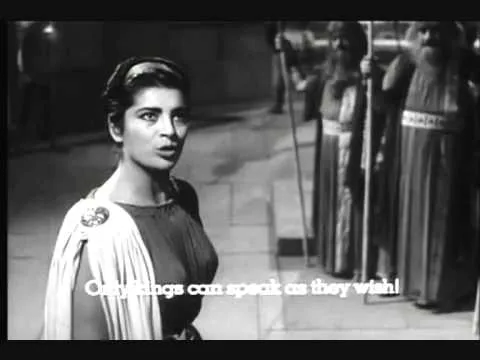
The only time fear enters her heart is when she is led to death. There she mourns her lost youth, her love with Aemon that will never be consummated, the life she will never live. But she will go her way beloved by her own dead, as she honored them.
Antigone is a stubborn, proud young woman. She stands up to what she believes, even if she is ruthless to her own people. She is full of love for the Gods, her family and that love movitates her actions. Strong before the death and consistent to her cause.
But for me, she is something much more:
Antigone, in my opinion, was one the first feminist and anarchist of her time. She defied the power of not just the man's but also the king's. She wasn't afraid due to her woman's nature and stood straight to her beliefs. She set an example for all of us, not to we give in to the unjust orders of authority, because we believe we are small or weak.
Antigone is a role model.
And I keep saying to my students: In your life be like Antigone, not Ismene.
Thanks for reading!
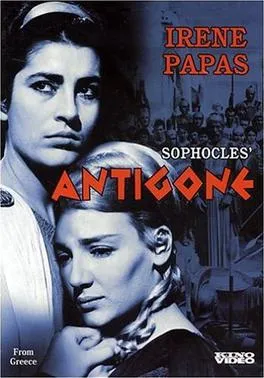
All the scenes were taken from the 1961 film adaptation of Antigone by Yorgos Tzavelas. The role of Antigone was played by the great Irene Papas and Creon was played by our great actor, Manos Katrakis.
